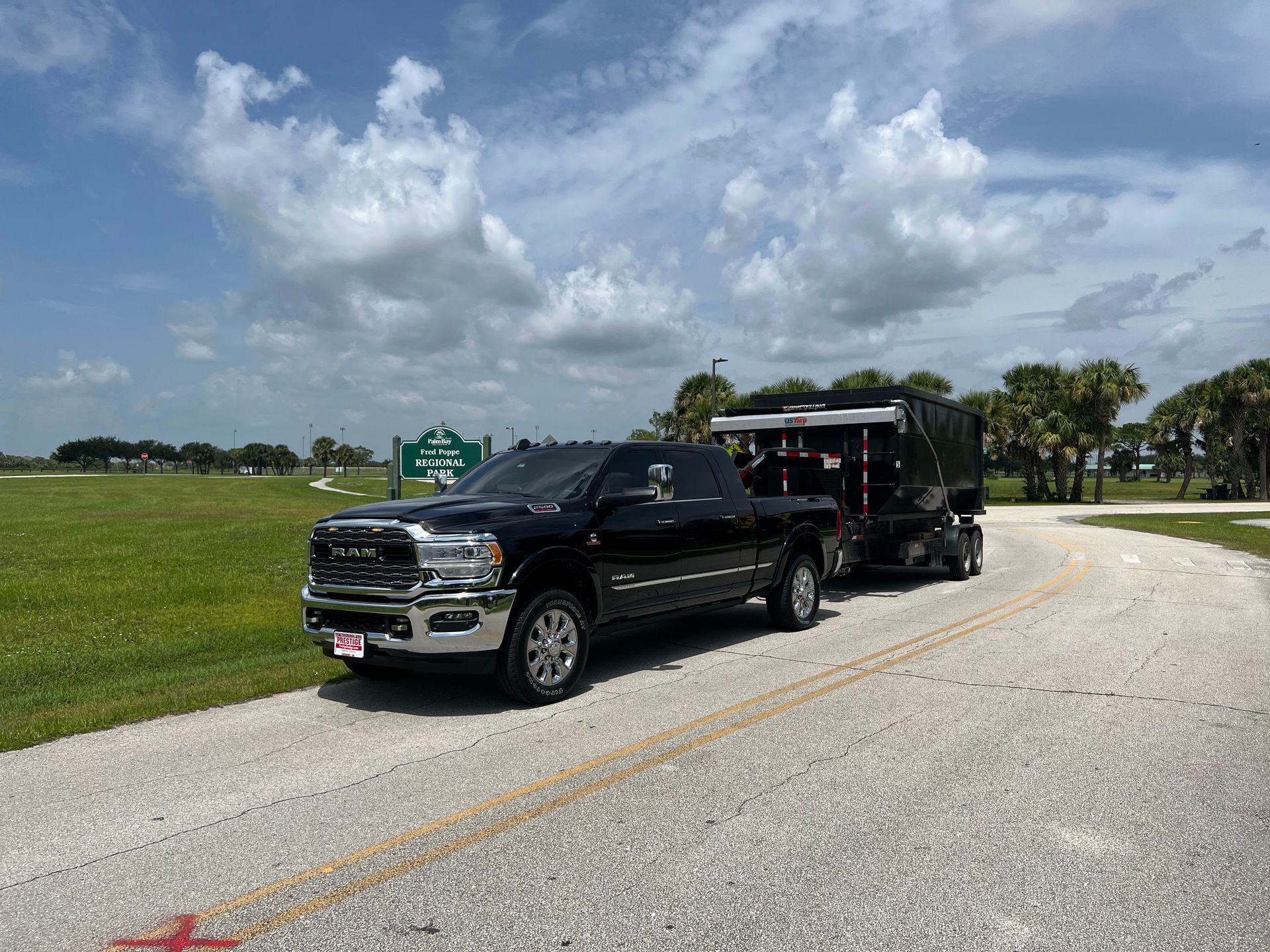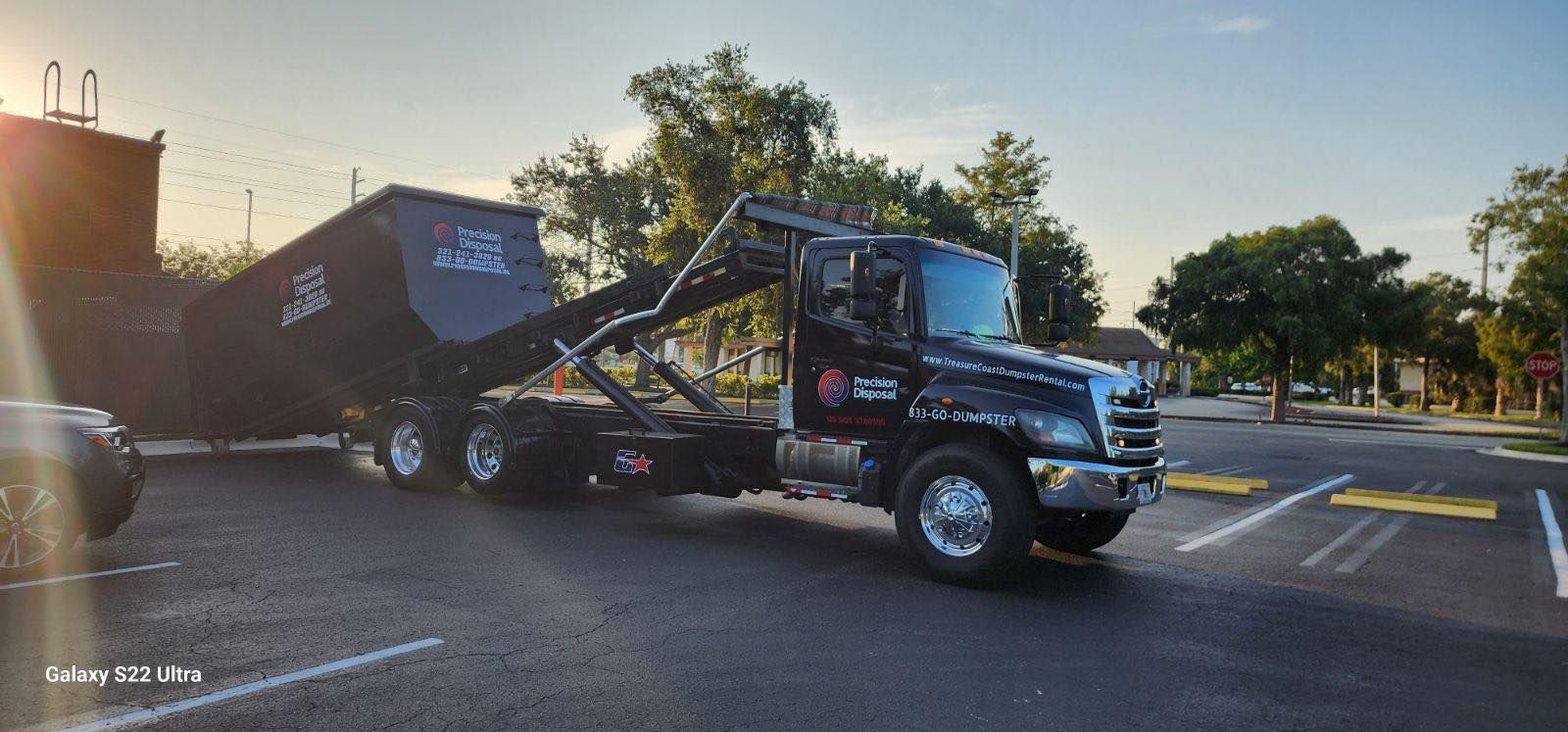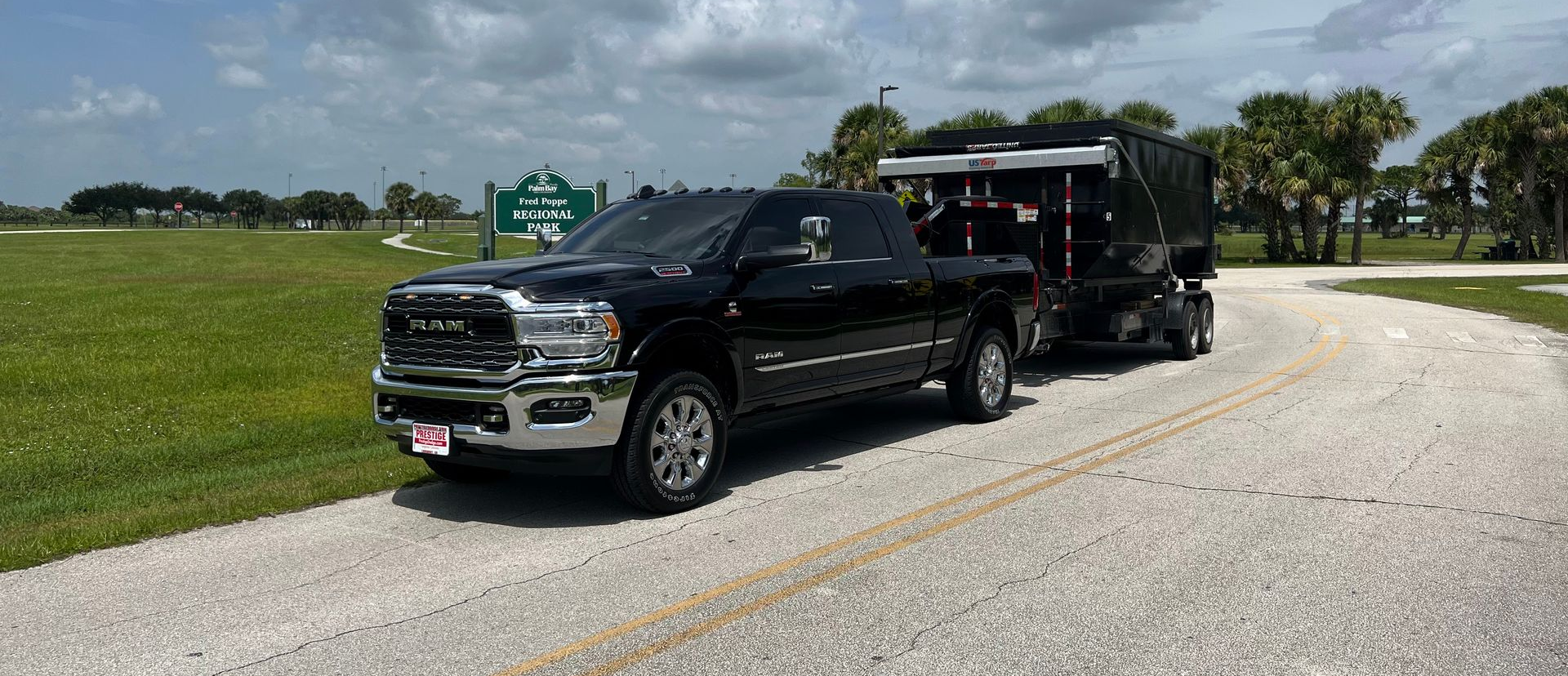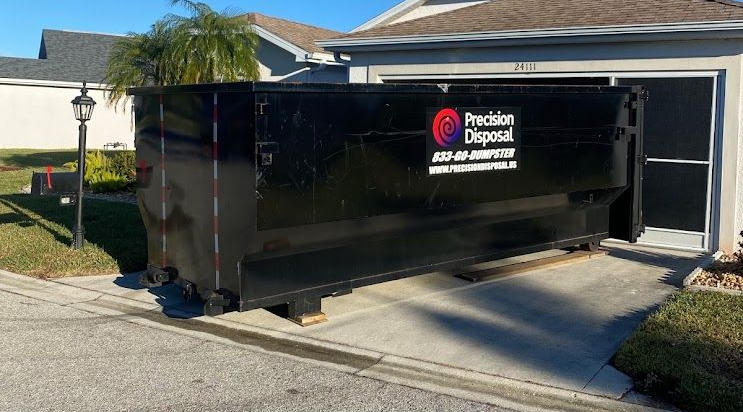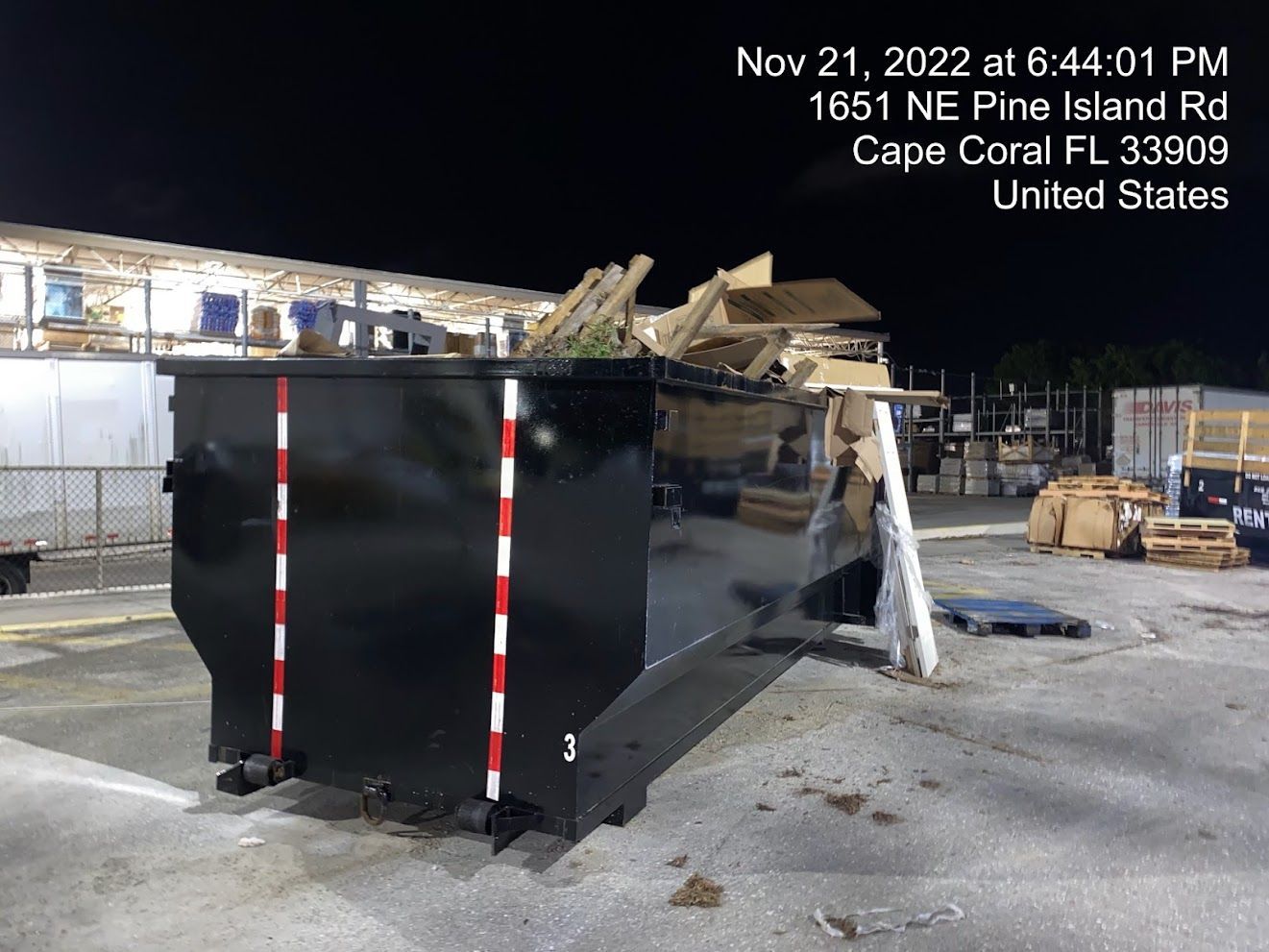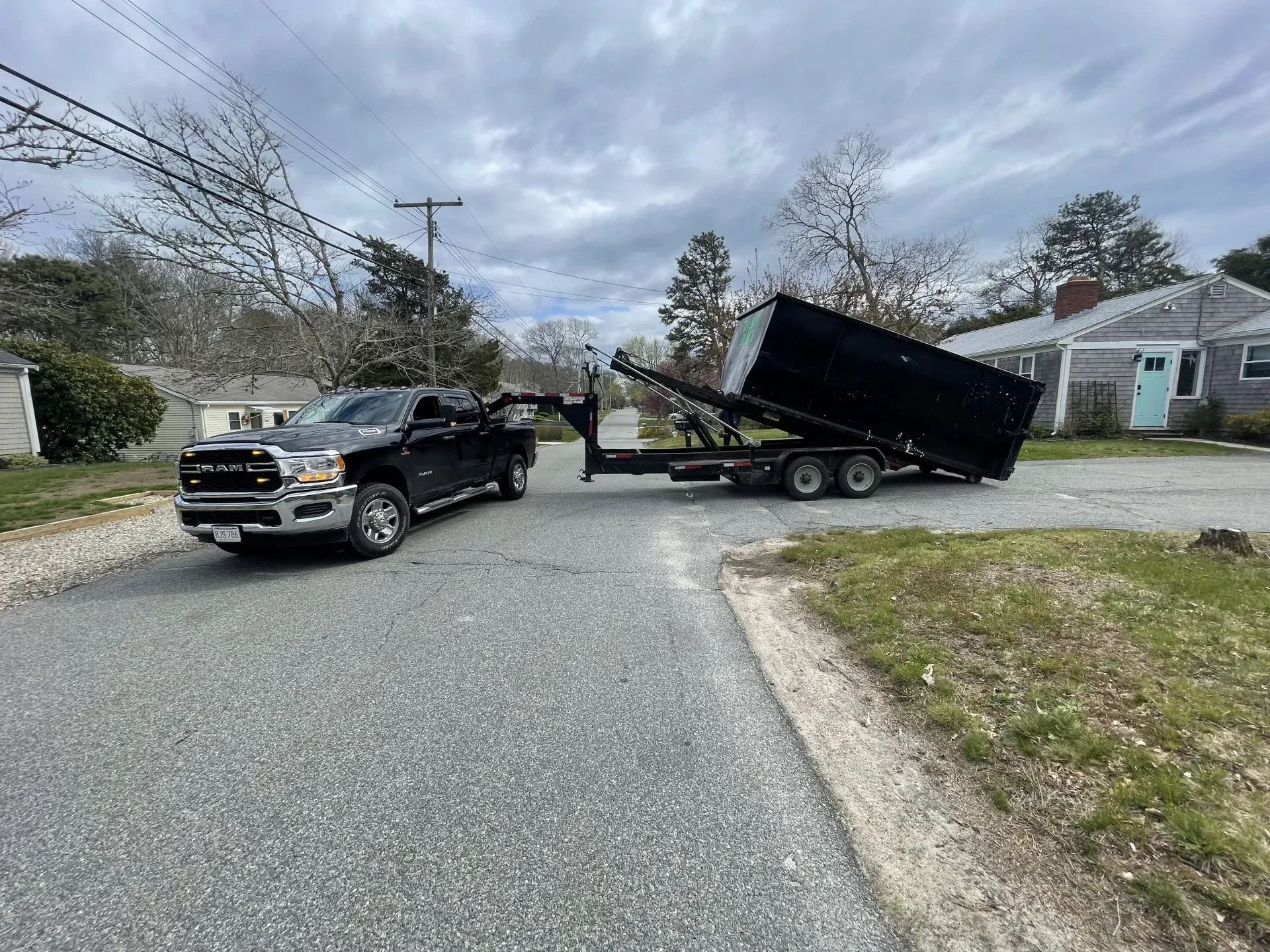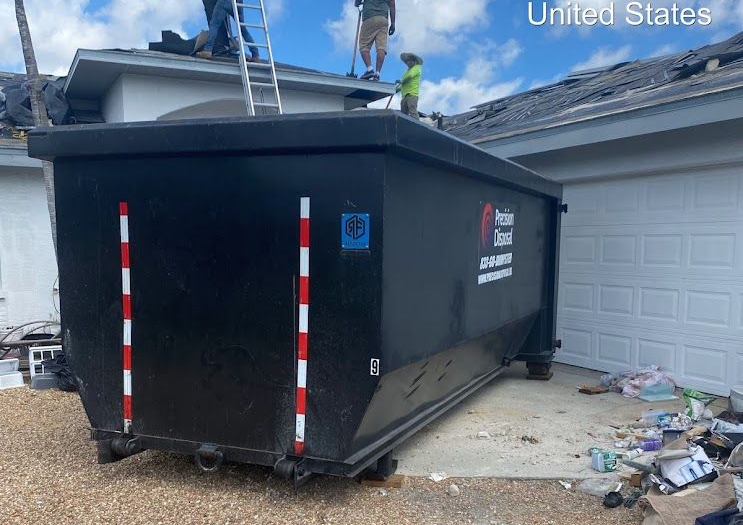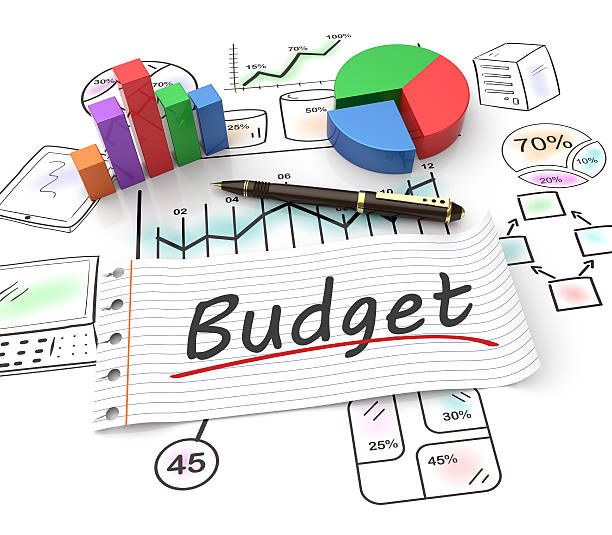5 Things You Should Do Before, During and After Your Dumpster Rental
Tips and tricks when renting a dumpster for your junk or renovation project
To ensure a successful and hassle-free dumpster rental experience for your junk removal or renovation project, it's vital to understand the purpose behind renting a dumpster and the importance of proper planning. In this section, we'll explore these concepts, highlighting the key benefits and considerations you need to be aware of. So, let's dive into understanding the purpose of a dumpster rental and the importance of proper planning.
Understanding the Purpose of a Dumpster Rental
Dumpster rentals are essential for waste management. They offer an easy and effective way to get rid of lots of items, mess, or building materials. With a wide range of sizes available, dumpster rentals suit many different needs - from home renovations to demolitions.
Using a dumpster rental for projects with a lot of waste brings several advantages.
- You don't have to go to the landfill, so you can focus on the task.
- Having a designated container ensures proper waste containment, reducing hazards.
Furthermore, dumpster rentals help preserve the environment. Professional waste collection and disposal follow strict rules from authorities. Recycling and responsible waste management are priorities to lower the environmental impact.
To show the importance of dumpster rentals, here's a true story. A contractor was working on a renovation project and didn't expect so much debris. As there was no room to store it and they didn't want to keep taking trips to get rid of it, they decided to rent a dumpster. This allowed them to get rid of everything with no disruption, while keeping the worksite organized and clean.
It's important to know about dumpster rentals. This way, you can handle waste management properly. Whether for residential renovations or commercial projects, dumpster rentals provide convenience and peace of mind when dealing with huge amounts of waste effectively and responsibly.
Importance of Proper Planning
Proper planning is vital for success. It saves resources, reduces risks, and increases productivity. It involves setting objectives, deadlines, and allocating resources. It also helps coordinate team members, anticipate potential problems, and make informed decisions.
History tells us the importance of planning. Take the Great Wall of China, for example. Emperor Qin Shi Huang meticulously planned it over many years. This project shows the power of strategic planning.
Preparing for the Dumpster Rental
To prepare for renting a dumpster for your junk removal or renovation needs, assess the amount of junk or waste you have, determine the appropriate dumpster size, and explore local dumpster rental options. These steps will ensure an efficient and successful dumpster rental experience.
Assessing the Amount of Junk or Waste
When it comes to renting a dumpster, assessing the amount of junk or waste is key. Take an inventory of all items you need to get rid of. Estimate the volume or weight of each item.
Be sure to consider any future projects that may generate more waste, and factor in local regulations regarding what can be discarded.
Think if you'll need extra help or equipment for heavy items. Assessing the amount of waste will affect your overall cost and experience.
Plus, 40% of household trash can be recycled. Separate recyclables from non-recyclables whenever possible for a more sustainable solution.
Selecting the right dumpster size is important - too big or too small and you'll be in a pickle.
Determining the Appropriate Dumpster Size
Choosing the right dumpster size is key. Consider different factors such as type of waste, volume of waste, and duration of the project. Make a table to help you decide. Include columns like waste type, volume in cubic yards, estimated weight. For instance, a 10-yard dumpster is ideal for household items during a renovation project. But for construction waste or bulky furniture, you need a bigger dumpster.
Keep special details in mind. Hazardous materials may require special handling and a different size dumpster. Also, check if there are any space restrictions on your property.
The type and volume of waste will tell you what size dumpster to go for. If you're not sure, choose a larger one. If space is limited or you have a budget, go for a smaller size.
By following these tips, you can avoid extra costs or inconveniences. It also prevents damage to surrounding structures. Furthermore, you won't need multiple trips for disposal.
Exploring Local Dumpster Rental Options
It's important to know the options available in your area.
Besides these basics, look into delivery and pick-up schedules, weight limits, fuel surcharges and local rules. These factors can affect your experience.
Dumpster rentals have a long history. They became popular in the early 20th century for waste management in cities like New York. Now, they're an integral part of many industries.
Explore options and consider their unique details when making decisions. Compare prices, sizes, and other factors before you choose. Good luck! Ensure your pre-dumpster rental checklist is as thorough as your ex's list of reasons for breaking up with you.
Pre-Dumpster Rental Checklist
To ensure a smooth dumpster rental experience for your junk removal or renovation project, follow this pre-dumpster rental checklist. Sort and organize the junk or waste, dispose of hazardous materials properly, obtain necessary permits or permissions, and plan for accessible placement of the dumpster. These steps will help you tackle the process efficiently and effectively.
Sort and Organize the Junk or Waste
Sorting and organizing your garbage is key to a successful dumpster rental. Take the time to separate items! Here's an easy guide:
- Classify: Group like things together -Bulk, Boxes, loose items
- Evaluate: Ask yourself if it's worth keeping or throwing away. Don't be afraid to get rid of things that aren't useful or don't make you happy.
- Estimate Volume: Calculate how much space each category will take up. Remember some items may be bulky and may need more room.
- Place Strategically: Fill the dumpster with larger, heavier items first. Then fill gaps with smaller items. This allows for maximum use of space and protects fragile objects.
To make it even easier, use storage containers or bags to keep small items organized. Label categories for a tidier clean-up process.
Sorting and organizing your junk before renting a dumpster saves time, makes disposal manageable, and offers recycling or donation opportunities. Plus, it prevents you from overfilling or underutilizing the dumpster. But remember, dispose of hazardous materials properly - mutant raccoons aren't a good look in your neighborhood!
Dispose of Hazardous Materials Properly
When dealing with harmful materials, it's important to get rid of them in a safe and responsible way. Here's a 3-step guide to do this:
- Spot hazardous materials: Before throwing anything away, it's important to recognize which items are considered dangerous. These can include chemicals, batteries, electronic waste, paint, etc.
- Research local disposal: Once you know what needs disposing of, check for local disposal options. Most areas have designated drop-off points or special collection days for these items. Contact your local waste management facility or view their website for more info.
- Follow disposal guidelines: When disposing of hazardous materials, it is a must to follow the instructions given by your local waste management facility. This may include packing the items securely, labelling them correctly, or using special containers for transportation.
It's essential to remember that the wrong disposal of hazardous materials can have serious consequences on the environment and human health. Step up and take action to make sure our community remains safe.
Obtain Necessary Permits or Permissions
Before you rent a dumpster, it's vital to get the necessary permits or permissions. Here are the steps you need to take:
- Study local regulations: Learn the exact rules and regulations set by your city or municipality about dumpster placement and use.
- Get in touch with the relevant officials: Reach out to the local government office or relevant department to ask about the permits or permissions needed for dumpster rental.
- Gather the required documents: Collect all the crucial paperwork, such as identification proofs, property ownership documents, and any extra forms that could be asked for.
- Complete the permit application process: Submit all the necessary documents and pay any applicable fees. Meet all the deadlines given.
- Wait for approval: Wait for confirmation from the authorities about your permit status. If approved, you can go ahead with the dumpster rental with no worries.
Bear in mind that some areas might have special needs not mentioned here. Therefore, it's smart to consult local specialists or professionals who can give you specific advice for your situation.
To make sure you have a trouble-free dumpster rental experience and abide by laws without any legal issues, don't delay in getting the necessary permits or permissions. Do it now and get everything ready before you move forward! Don't forget, if you skip this critical step, there could be delays or penalties you'd rather avoid. Take charge right away for an effortless disposal solution! Also, place the dumpster strategically to avoid 'welcoming' your neighbors with a massive trash bin blocking their driveway.
Plan for Accessible Placement of the Dumpster
Proper planning of dumpster placement is key for successful waste management. Strategically consider its location to streamline the process and avoid hiccups. Here's a 3-step guide to assist you:
- Assess space: Examine your property's design and pick suitable spots for the dumpster. Choose an open section away from trees, poles, and vehicles. A spot that allows easy access for delivery and removal trucks is ideal.
- Check regulations: Learn if local regulations exist for dumpster placement. There may be rules on setback distances from buildings, roads, or property lines. Adhere to these to prevent legal issues and comply with municipal requirements.
- Consider accessibility: When deciding where to put the dumpster, think about its accessibility for users. Aim for a spot that minimizes the distance people need to travel carrying heavy items or bags. This is for safety and to help with proper disposal.
Tell the rental company your plan in advance so they can meet your needs. Waste360 magazine reports that effective positioning of dumpsters can reduce hauling distances by 50%, saving time and fuel cost. When it comes to renting a dumpster, remember: Measure twice, dump once!
When Renting a Dumpster
To ensure a smooth dumpster rental experience for your junk removal or renovation project, familiarize yourself with some essential aspects. Understand the rental terms and conditions, master proper loading techniques, prioritize safety precautions, monitor fill levels to avoid overloading, and stick to the rental period while scheduling pickup.
Understanding Rental Terms and Conditions
Ensure you know the rental duration; additional fees may apply. Familiarize yourself with permitted materials to avoid penalties. Be aware of the weight restrictions or extra costs may incur. Understand your responsibilities for any potential damage or liability during the rental.
Also, some unique details may come up due to the rental company's policies. Review any specific requirements they may have, like getting permits or following drop-off/pick-up procedures. Knowing this beforehand will make the rental experience smooth.
A pro tip: Before signing the agreement, read and understand all terms and conditions. This can help you avoid unexpected surprises and misunderstandings during the rental process. Renting a dumpster will be stress-free when you are aware of the terms and conditions.
Remember, it's not only about dumping trash; do it safely. Poor loading techniques can turn the dumpster rental into a real-life game of Trash Jenga.
Proper Loading Techniques and Safety Precautions
When renting a dumpster, proper loading techniques and safety precautions are essential. They help you use space efficiently and prevent accidents. Here are 3 key points to keep in mind:
- Maximize space: Pack items tightly together. Secure large items with straps or ropes. This will stop them from moving during transport.
- Weight distribution: Place heavier objects at the bottom for a stable base. Distribute lighter objects evenly over it. Avoid overloading one side of the dumpster to prevent tipping.
- Hazardous materials: If disposing of hazardous materials like chemicals or flammable substances, research local waste management authority guidelines for disposal or alternative options.
In addition, wear protective gear like gloves and goggles. Be aware of your surroundings and avoid placing the dumpster in traffic areas.
Jim, a homeowner who rented a dumpster, learned the hard way about the importance of following loading techniques and safety precautions. His belongings were damaged and shifted during transit.
Renting a dumpster can be a great way to manage waste. But, it's important to prioritize proper loading and safety to have a successful rental. This also contributes to a safer environment for you and those handling the dumpster. Monitor the fill level - it's easy to get carried away and create a mess.
Monitoring the Fill Level and Avoiding Overloading
When renting a dumpster, monitoring the fill level and avoiding overloading is key. This will enable you to make the most of its capacity and follow safety regulations. To do this, you should:
- Regularly check the fill level.
- Distribute the weight evenly throughout the container.
- Use markers or lines inside to indicate the maximum fill line.
- Contact the rental company if it starts to approach its limit.
For efficient waste management, other factors are important too. Segregating recyclable materials and hazardous waste can help optimize space usage while minimizing environmental impact.
A reminder of why monitoring and avoiding overloading is so important - one renter was fined for exceeding weight limits due to not checking the fill level. Avoid late fees by sticking to the rental period!
Adhering to the Rental Period and Scheduling Pickup
When renting a dumpster, it's key to consider the rental period and pick-up scheduling. To ensure a problem-free process, make sure to adhere to the agreed duration and plan the pick-up accordingly.
To make things easier:
- 1. Stick to the rental period: Avoid extra charges or issues by using the dumpster only within the designated timeframe.
- 2. Plan your project timeline: Before renting, map out your project timeline to make sure you have enough time to complete the work.
- 3. Stay in touch with the company: Talk to the rental company throughout your project. Tell them if you need an extension or finish early.
- 4. Schedule pick-up ahead: As your project nears completion, schedule the pick-up with the rental company in advance.
- 5. Clear access: Make sure the dumpster is accessible and free of obstructions for easy pick-up.
- 6. Follow guidelines: Some companies have specific instructions on how to prepare or load the dumpster. Follow these to avoid any issues.
For an enjoyable experience, plan ahead and anticipate any potential delays; optimize space usage inside the dumpster; and coordinate with other contractors if applicable. Following these tips will help you stick to the rental period and schedule the pick-up with ease. Think of it as a one-night stand - know the post-rental steps to ensure a smooth process!
Proper Post-Dumpster Rental Steps
To ensure a smooth post-dumpster rental process with maximum effectiveness, consider these proper steps. Evaluate waste removal efficiency, explore recycling and donation options for reusable items, clean and restore the site, and finally, review your dumpster rental experience. Following these steps will help you streamline your junk removal or renovation project effortlessly.
Evaluating Waste Removal Efficiency
To suss out waste removal efficiency, assess the factors that spur effective management. Consider these criteria:
- Recycling Rate: Measure the percentage of waste recycled vs. landfill disposed. A high rate means better removal efficiency.
- Waste Segregation: See how well waste is sorted into categories like recyclables, organic, and non-recyclables. This helps proper disposal and efficiency.
- Collection Time: Evaluate the time it takes for collection vehicles to pick up garbage. Efficient routes and timely collection mean swift removal.
- Recycling Facilities: Check availability and proximity of recycling centers. These accessible facilities contribute to efficient waste removal.
- Disposal Practices: Monitor if hazardous or special waste is disposed safely and per regulations. This reduces environmental risks and shows responsible waste management.
By evaluating waste removal with these criteria and following these tips, you can make strides towards sustainable waste management. This benefits the environment and the community:
- Educate Residents: Raise awareness on proper recycling techniques through educational programs. This leads to more efficient waste removal.
- Optimize Collection Routes: Analyze data to optimize routes for garbage collection vehicles. This reduces fuel, time, and operational efficiency.
- Invest in Technology: Consider tech solutions like smart bins and sensors. This streamlines waste removal operations and eliminates unnecessary trips.
- Partner with Recycling Companies: Establish partnerships for a seamless transition from collection to processing. This promotes efficient removal and helps recycling industries grow.
Remember, if your waste is still of use, consider it a breakup – you're just giving it a chance to find a new love.
Recycling and Donation Options for Reusable Items
Time to get creative with 'dumpster chic'! Let's Marie Kondo our way through post-dumpster rental cleanup.
Recycle: Separate plastics, glass and paper. Look for local centers or curbside pickup services.
Donate: Give away gently used items such as furniture, appliances and clothing. Make sure they're in good condition first!
Freecycle: Join online communities to give away stuff for free. This helps others and keeps things out of landfills.
Plus, some orgs offer pick-up services for larger donations. Convenient and for a good cause!
When dealing with waste electronics, it's important to dispose of it properly. Take them to designated drop-off points or contact the manufacturer for recycling options.
Fun fact: The EPA says 75% of American waste is recyclable, but only 30% is actually recycled.
Cleaning and Restoring the Site
My life has hit a new high in cleanliness! After a dumpster rental, cleaning and restoring the site is essential. To ensure the area is pristine, free of any waste, proper cleaning and restoration is key. It promotes safety and boosts the aesthetics.
- Step one: clear and remove all debris.
- Step two: sweep and wash.
- Step three: restore landscaping and features.
Lastly, inspect the site before fully restoring it. Plus, proper disposal methods help reduce pollution.
Reviewing the Dumpster Rental Experience
Let's assess the dumpster rental experience! Customer service, delivery/pickup efficiency, pricing transparency, and overall satisfaction are all factors to consider. It is the lifeline of the consumer and the company to get reviews. Clients make decisions based on reviews, and companies earn or lose business because of reviews.
So if the customer service was responsive and accommodating. Plus, delivery and pickup were swift and efficient. And, they even provided a detailed breakdown of costs with no hidden fees - this sets them apart from other companies and you should leave them a review of their dumpster rental service.
A great example of a good review might be:
Don't miss out on a stress-free rental experience! {Company} was fast, fair, efficient and dependable. We needed a swap because we mis calculated the amount of debris we had and they responded promptly, if they hadn't it would've delayed our project and cost us thousands. If you need a dumpster rental we recommend {Company} in {town} and will be a reference for life!"
Frequently Asked Questions
1. What items can I put in a rental dumpster?
You can typically put household items such as furniture, appliances, and electronics in a rental dumpster, as well as construction materials like concrete, wood, and drywall. However, hazardous materials like chemicals and batteries are not allowed.
2. What size dumpster do I need?
The size of the dumpster you need will depend on the amount of junk you are getting rid of. A 10-yard dumpster is suitable for small cleanouts or DIY projects, while a 30-yard dumpster is best for larger projects like whole-house renovations.
3. Do I need a permit to rent a dumpster?
Whether or not you need a permit for renting a dumpster will depend on your location and the rental company. In most cases, if you are placing the dumpster on your private property, you will not need a permit.
4. Can I schedule same-day dumpster delivery?
Some rental companies offer same-day dumpster delivery, but it will depend on their availability and your location. It is always best to plan ahead and book your dumpster rental in advance to ensure availability.
5. How long can I keep the dumpster?
The rental period for a dumpster varies by company, but it usually ranges from 7 to 14 days. If you need the dumpster for an extended period of time, you may be able to negotiate a longer rental period with the rental company.
6. What should I do if the dumpster gets too full?
If your dumpster gets too full, you should contact the rental company to arrange for emptying or swapping out the dumpster for a larger size or just another one of the same size.
With over 60 Years of combined customer service experience at the helm of Precision Disposal, clients are sure to find what they need from the perspective of expertise and elite customer service for their Roll Off Dumpster Service needs.
Precision Disposal Offers Dumpster Rentals at these fine locations and their surrounding communities
Plymouth MA (Original Branch)
Port St Lucie FL (Second Location)

